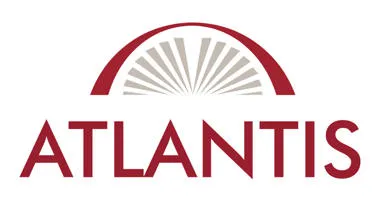
Professor Richard Emsley
Academic Director of the King’s Clinical Trials Unit
- Professor of Medical Statistics and Trials Methodology
Biography
Richard Emsley holds a joint appointment as Academic Director of the King’s Clinical Trials Unit and Professor of Medical Statistics and Trials Methodology in the Department of Biostatistics & Health Informatics in the Institute of Psychiatry, Psychology & Neuroscience at King's College London. He was an NIHR Research Professor from 2019 to 2025.
He is the Theme Lead for Trials, Genomics and Prediction at the NIHR Maudsley Biomedical Research Centre and Director of the NIHR Research Support Service Hub delivered by King’s College London and Partners, which has a specific Hub focus on Mental Health & Neuroscience studies. He is the Director of the Innovative Trials Hub in the Data and Digital Alliance Team, as part of the Office for Life Sciences Mental Health Goals Programme.
Before joining the IoPPN in January 2018, Richard held a personal Chair at The University of Manchester as Professor of Medical Statistics and was Deputy Director of the then Manchester Clinical Trials Unit.
Richard studied at The University of Manchester for a BSc in Mathematics and a PhD in Biostatistics under the supervision of Professor Graham Dunn and Professor Andrew Pickles. Following his PhD, he worked as a Research Associate in the Centre for Biostatistics, and was awarded personal fellowships including an MRC Career Development Award in Biostatistics and an MRC Early Career Centenary Award, before being appointed as a Lecturer in 2012, and promoted to Senior Lecturer in 2015 and Professor in 2016.
Research interests
- Clinical trials methodology
- Design and analysis of efficient trials
- Developing statistical methods for efficacy and mechanisms evaluation using causal inference approaches
- Clinical trials in mental health and neuroscience
Education
On the MSc in Applied Statistical Modelling and Health Informatics, Richard contributes to the following modules:
- Multilevel and Longitudinal Modelling (module lead)
- Causal Modelling and Evaluation
- Research Project
Expertise and public engagement
- Member of funding committees for NIHR and Cancer Research UK
- Investigator on the MRC-NIHR Trials Methodology Research Partnership, and co-lead of its Statistical Analysis Working Group.
- Chair of the Scientific Committee for the International Clinical Trials Methodology Conference 2026
- Lead for the joint department and NIHR Maudsley BRC Methodology Patient and Public Involvement group
Research
AVATAR2
AVATAR therapy offers a new approach to working with distressing voices (auditory hallucinations), using digital technology to allow ‘face-to-face’ dialogue between the voice-hearer and a computerised representation of their voice (the avatar). We are now taking this forward in the AVATAR2 trial.
The Avatar Project
The AVATAR Project was a clinical research trial of an innovative new therapeutic treatment designed to help people suffering from distressing voices.
Project status: Completed

Mental Health & Neuroscience Clinical Trial Statistics Group
The Mental Health & Neuroscience Clinical Trial Statistics Group leads on the design, conduct and reporting of clinical trials in mental health.

Trials Methodology Research Group
The Trials Methodology Research Group is focussed on improving the design, conduct and analysis of clinical trials for the benefit of participants, researchers, and others who use the evidence to make decisions about healthcare.

ATLANTIS - AnTiconvuLsant AugmeNtation Trial In Schizophrenia
NIHR funded multi-centre clinical trial evaluating valproate augmentation of antipsychotic medication in the management of psychosis

STOP-D (Sertraline TO prevent Post-TBI Depression)
A multi-centre placebo-controlled double blind RCT to investigate the use of sertraline in reducing depressive symptoms in traumatic brain injury patients.
Project status: Ongoing

Causal Analysis & Evaluation
The Causal Modelling Group comprises statisticians and methodologists at King’s College London interested in drawing causal inferences from study data.

Improving Communication with Adults with Learning Disabilities
Improving Communication with Adults with Learning Disabilities is a five-year programme led by Vicky Slonims and Martin Knapp aimed at improving communication with adults with learning disabilities in social care settings.
News
New funding for UK mental health research in under-served areas
The NIHR is investing almost £55 million in five additional Mental Health Research Groups (MHRGs). King’s College London researchers will collaborate on three...

King's plays major role in £50 million government funded programme into mental health research
Researchers at King's, University of Oxford and Cardiff University will help transform mental health data, clinical trials and industry partnerships as part...

Nearly £5m Wellcome funding to improve access to psychological therapies for young people with psychosis and depression using AI
Researchers have received £4.9 million to develop and evaluate an AI-supported intervention for cognitive difficulties in young people with psychosis and...

Mollie Payne awarded the Society for Clinical Trials Thomas C. Chalmers Student Scholarship
Mollie Payne wins the Thomas C. Chalmers Student Scholarship at the 2025 Society for Clinical Trials Annual Meeting in Vancouver, Canada.

Multi-site trial uses digital avatars to effectively reduce distressing voices in psychosis
A novel therapy using computer-generated avatars has found to be an effective way of helping people with psychosis reduce the distress and frequency with...
New NIHR Research Support Service established at King's College London
The National Institute of Health and Care Research (NIHR) has awarded £6.8 million to King’s College London to establish a new Research Support Service that...

Events

Trials Methodology Research Showcase
The Trials Methodology Research Showcase is a key opportunity to find out more about the wide-ranging research undertaken by our team of trial methodologists...
Please note: this event has passed.
Features
Behind the scenes: IoPPN at the International Clinical Trial Methodology Conference
Dr Merry Martyn and Dr Anca Chis Ster from the Department of Biostatistics & Health Informatics take us behind the scenes of the International Clinical Trial...

Spotlight
Talking back: the power of digital avatars in psychosis therapy
AVATAR therapy has shown significant promise in reducing the frequency and impact of distressing voices for those with a diagnosis of schizophrenia. Working...
Research
AVATAR2
AVATAR therapy offers a new approach to working with distressing voices (auditory hallucinations), using digital technology to allow ‘face-to-face’ dialogue between the voice-hearer and a computerised representation of their voice (the avatar). We are now taking this forward in the AVATAR2 trial.
The Avatar Project
The AVATAR Project was a clinical research trial of an innovative new therapeutic treatment designed to help people suffering from distressing voices.
Project status: Completed

Mental Health & Neuroscience Clinical Trial Statistics Group
The Mental Health & Neuroscience Clinical Trial Statistics Group leads on the design, conduct and reporting of clinical trials in mental health.

Trials Methodology Research Group
The Trials Methodology Research Group is focussed on improving the design, conduct and analysis of clinical trials for the benefit of participants, researchers, and others who use the evidence to make decisions about healthcare.

ATLANTIS - AnTiconvuLsant AugmeNtation Trial In Schizophrenia
NIHR funded multi-centre clinical trial evaluating valproate augmentation of antipsychotic medication in the management of psychosis

STOP-D (Sertraline TO prevent Post-TBI Depression)
A multi-centre placebo-controlled double blind RCT to investigate the use of sertraline in reducing depressive symptoms in traumatic brain injury patients.
Project status: Ongoing

Causal Analysis & Evaluation
The Causal Modelling Group comprises statisticians and methodologists at King’s College London interested in drawing causal inferences from study data.

Improving Communication with Adults with Learning Disabilities
Improving Communication with Adults with Learning Disabilities is a five-year programme led by Vicky Slonims and Martin Knapp aimed at improving communication with adults with learning disabilities in social care settings.
News
New funding for UK mental health research in under-served areas
The NIHR is investing almost £55 million in five additional Mental Health Research Groups (MHRGs). King’s College London researchers will collaborate on three...

King's plays major role in £50 million government funded programme into mental health research
Researchers at King's, University of Oxford and Cardiff University will help transform mental health data, clinical trials and industry partnerships as part...

Nearly £5m Wellcome funding to improve access to psychological therapies for young people with psychosis and depression using AI
Researchers have received £4.9 million to develop and evaluate an AI-supported intervention for cognitive difficulties in young people with psychosis and...

Mollie Payne awarded the Society for Clinical Trials Thomas C. Chalmers Student Scholarship
Mollie Payne wins the Thomas C. Chalmers Student Scholarship at the 2025 Society for Clinical Trials Annual Meeting in Vancouver, Canada.

Multi-site trial uses digital avatars to effectively reduce distressing voices in psychosis
A novel therapy using computer-generated avatars has found to be an effective way of helping people with psychosis reduce the distress and frequency with...
New NIHR Research Support Service established at King's College London
The National Institute of Health and Care Research (NIHR) has awarded £6.8 million to King’s College London to establish a new Research Support Service that...

Events

Trials Methodology Research Showcase
The Trials Methodology Research Showcase is a key opportunity to find out more about the wide-ranging research undertaken by our team of trial methodologists...
Please note: this event has passed.
Features
Behind the scenes: IoPPN at the International Clinical Trial Methodology Conference
Dr Merry Martyn and Dr Anca Chis Ster from the Department of Biostatistics & Health Informatics take us behind the scenes of the International Clinical Trial...

Spotlight
Talking back: the power of digital avatars in psychosis therapy
AVATAR therapy has shown significant promise in reducing the frequency and impact of distressing voices for those with a diagnosis of schizophrenia. Working...
